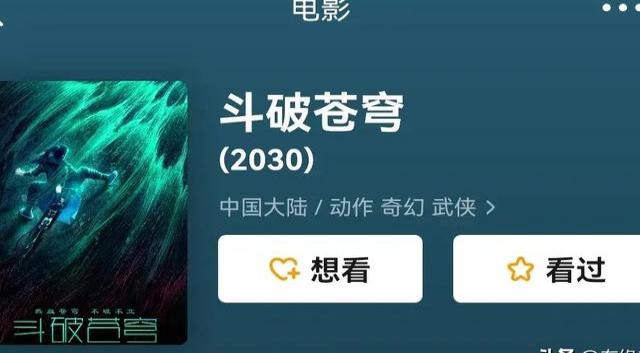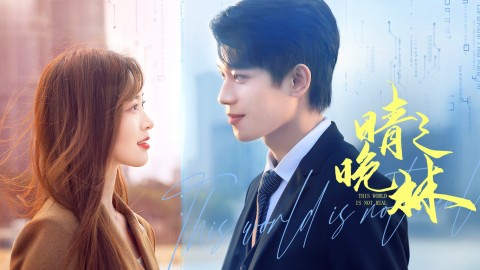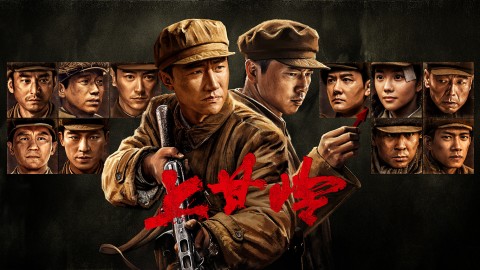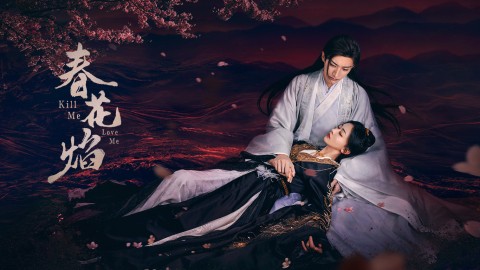Battle Through the Heaven: The Highly Anticipated Live-Action Adaptation Faces Disappointment
The recent hot topic in the entertainment industry revolves around the highly anticipated live-action adaptation of "Battle Through the Heaven." Do you remember the transformation of the fantasy drama into a martial arts series with the introduction of "Battle Through the Sky" and the iconic "Qi-turns-into-horse" scene? Now, the series returns in the form of a sequel called "The Return of the Youth." Although there have been some changes in the cast, the audience's enthusiasm for the show remains high, as they hope it can capture the essence of the original novel.
However, the reality revealed by the plot has left people feeling somewhat injured. Compared to the first season, "The Return of the Youth" has upgraded its special effects, avoiding the ridicule that plagued the initial season. The audience has responded relatively positively to the improved visual effects, perhaps because the first installment set a lower benchmark, leading to adjusted expectations.
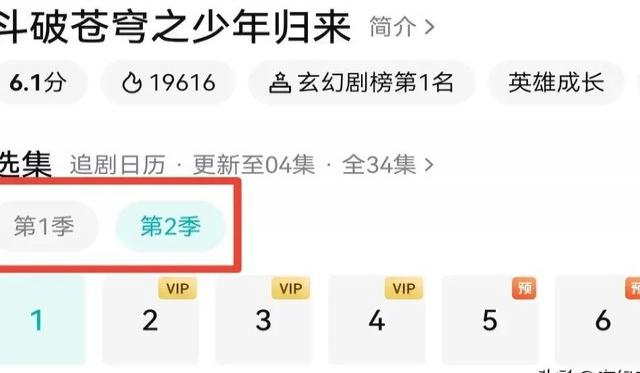
Despite the slight improvement in special effects, the show disappoints in other aspects. In terms of dialogue, acting performances, and character portrayals, "The Return of the Youth" falls short of expectations and has been dubbed by netizens as "not the worst, but even worse." Viewers generally believe that any praise the show receives is mainly due to the malicious special effects showcased in the first installment. As a male-dominated drama with an emphasis on thrilling battles, the series' main highlight should be the fight scenes, but what is presented on screen feels lackluster and uninspiring.
Whether it's students fighting or teachers being knocked down with a single punch, the show follows a repetitive pattern lacking originality. Even in major battle scenes, it fails to deliver remarkable moments that capture viewers' attention.
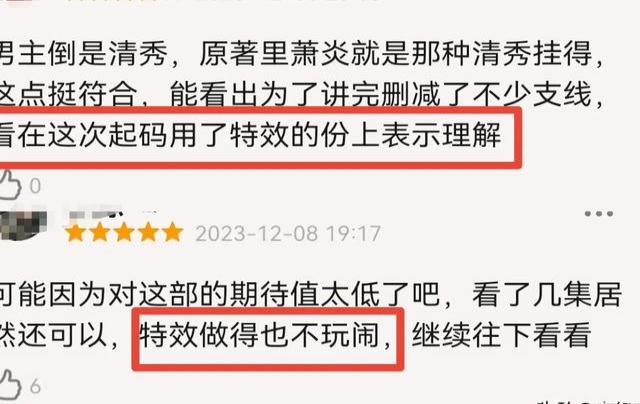
Especially when it comes to showcasing agility, the show's performance in this aspect is quite mediocre. The male lead, Wei Ya, jumps onto rooftops, while the female lead falls into a monotonous pattern of excessive boasting. However, these presentations leave much to be desired. In comparison, the classical Lingbo Microsteps would have had a more powerful impact on the audience.
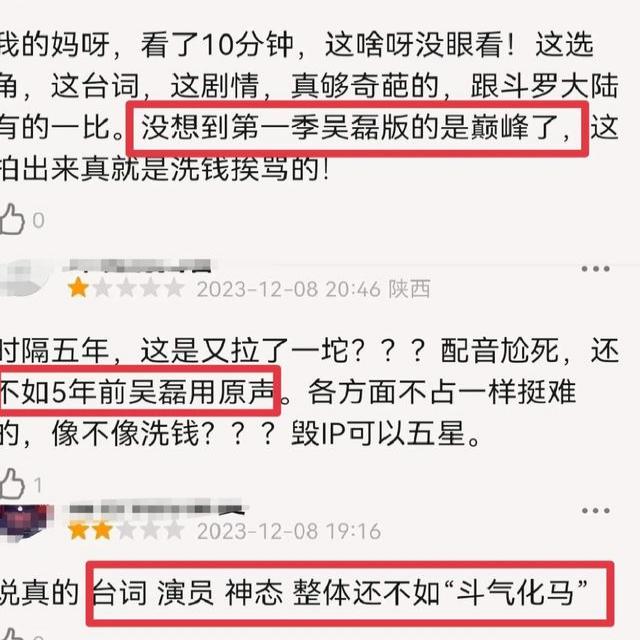
Regarding the cast's performances, the female lead, Ding Xiao Ying, falls short when compared to the character Qingniao from "Sword Dynasty." Wu Lei, who portrayed the male lead in the first installment, shone as a bright spot, but He Luo Luo's portrayal in the sequel is even more disappointing than Ma Boqian's performance.
"<-- -->"
Overall, "Battle Through the Heaven: The Return of the Youth" received negative reviews right from its premiere, with ratings ranging between 36 and 44. This raises doubts about whether the entertainment industry has ruined this popular intellectual property (IP). With three versions of the live-action adaptation already released, one might question if the future of "Battle Through the Heaven" is still worth anticipating. The only aspect that can be praised in this series may be the hairstyle of the character Yao Lao. Going from wild and unruly to neatly groomed, it is one of the few highlights in the show. However, after experiencing three versions of disappointing adaptations, can the upcoming film version set to release in 2030 still manage to generate anticipation for "Battle Through the Heaven"?
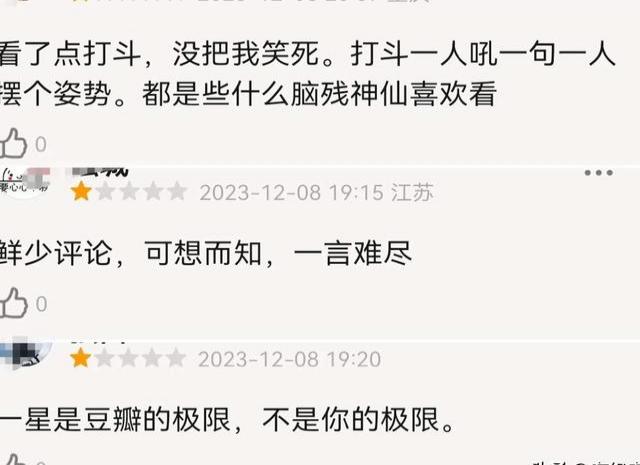
The entertainment industry has once again sparked discussion, and audiences are eager to see if the live-action adaptation can break new ground and exceed expectations.

As a male-dominated drama with an emphasis on thrilling battles, the main highlight of the show should be the fight scenes. However, the actual presentation of these scenes leaves much to be desired. Whether it's students fighting or teachers being knocked down with a single punch, the show follows a repetitive pattern lacking originality. Even in major battle scenes, it fails to deliver remarkable moments that capture viewers' attention.
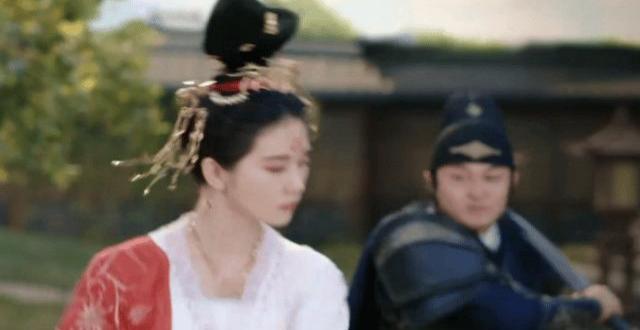
Especially when it comes to showcasing agility, the show's performance in this aspect is quite mediocre. The male lead, Wei Ya, jumps onto rooftops, while the female lead falls into a monotonous pattern of excessive boasting. However, these presentations leave much to be desired. In comparison, the classical Lingbo Microsteps would have had a more powerful impact on the audience.
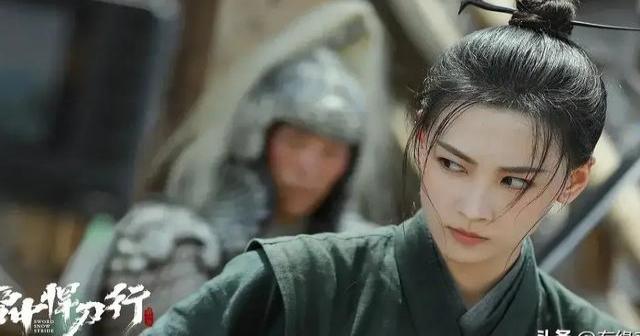
Regarding the cast's performances, the female lead, Ding Xiao Ying, falls short when compared to the character Qingniao from "Sword Dynasty." Wu Lei, who portrayed the male lead in the first installment, shone as a bright spot, but He Luo Luo's portrayal in the sequel is even more disappointing than Ma Boqian's performance.
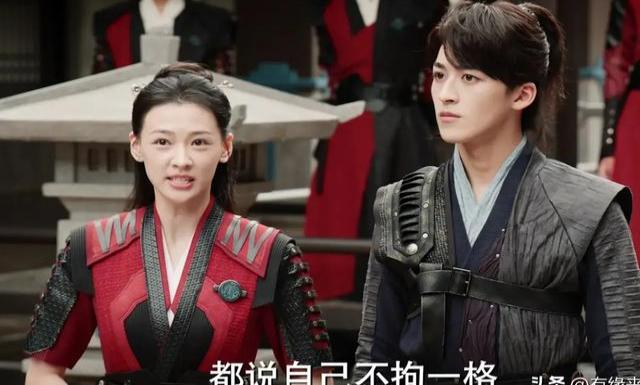
Overall, "Battle Through the Heaven: The Return of the Youth" received negative reviews right from its premiere, with ratings ranging between 36 and 44. This raises doubts about whether the entertainment industry has ruined this popular intellectual property (IP). With three versions of the live-action adaptation already released, one might question if the future of "Battle Through the Heaven" is still worth anticipating.
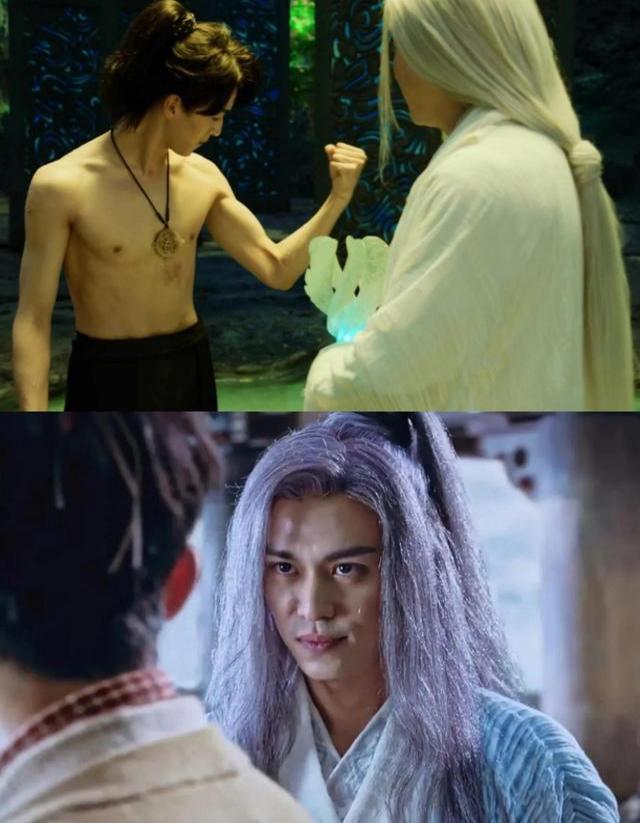
The only aspect that can be praised in this series may be the hairstyle of the character Yao Lao. Going from wild and unruly to neatly groomed, it is one of the few highlights in the show. However, after experiencing three versions of disappointing adaptations, can the upcoming film version set to release in 2030 still manage to generate anticipation for "Battle Through the Heaven"?
